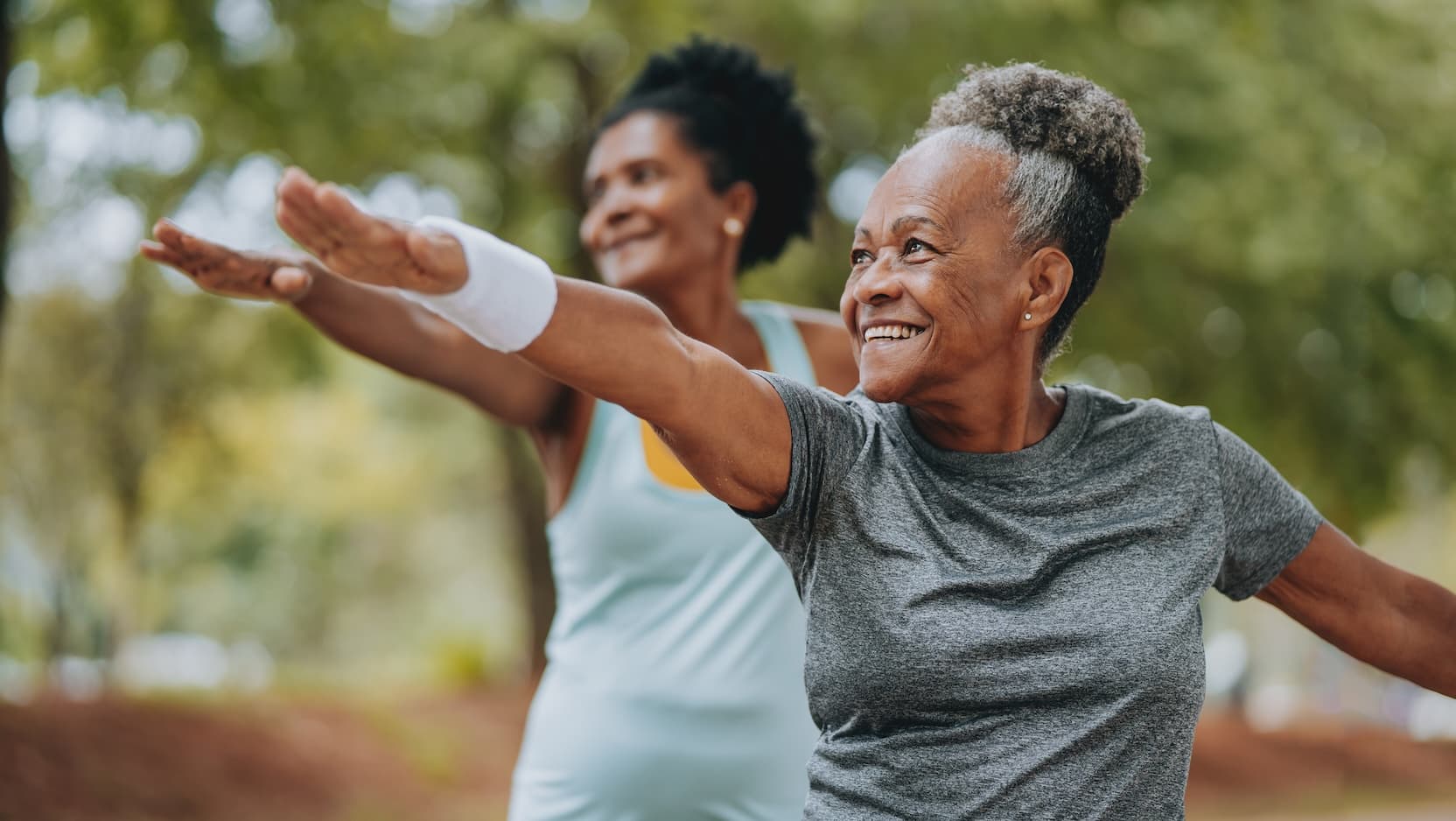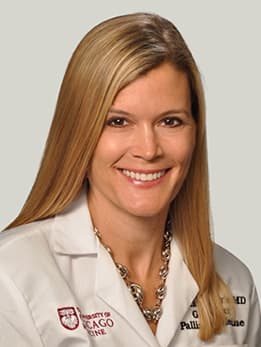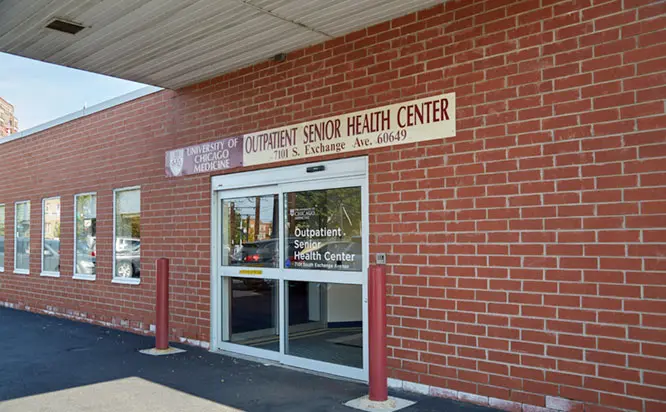How to age gracefully: 5 proven tips from a UChicago Medicine geriatrician

When it comes to aging, attitude is everything.
At the University of Chicago Medicine South Shore Senior Center, Stacie Levine, MD, sees patients 65 years and older, with most in their 80s and 90s.
Their outlook? “They view aging very positively — and they feel a sense of pride,” said Levine, a Professor of Medicine and Section Chief of Geriatrics and Palliative Medicine at UChicago. “The vast majority are focused on living their lives; they’re not focused on death.”
Building good habits and a strong relationship with your doctors is just as important.
The South Shore Senior Center offers comprehensive primary and specialty care for adults age 65 and older, and it’s the only medical center on Chicago’s South Side focused exclusively on the healthcare needs of aging adults.
Levine shared some easy ways to live healthfully and happily.
1. Get your body moving
Young or old, most of us spend far too much time sitting — and that’s hard on the body.
“As human beings, we’re designed to be upright and using our bigger muscle structures for motion,” Levine said.
Her advice: Be active for at least 30 minutes five days a week. You don’t have to run or jog, she said; walking will do the trick. People who struggle with balance can take up swimming.
Levine counsels her patients to develop their thigh muscles, which weaken with age, by standing up from a stable chair and sitting back down roughly 15 times for three times each day. “Strengthening the quadricep muscles is incredibly important,” she said.
Falls are the leading cause of injury for older adults, so doing exercises that help with balance are critical. While you’re washing the dishes or brushing your teeth, try standing on one foot for as long as possible, Levine said.
2. Exercise your brain
How can older adults preserve brain health and avoid dementia? “That’s probably the No. 1 question I get,” Levine said.
She stresses knowing the difference between signs of normal age-related brain changes, such as forgetting why you went into a room, and possible indicators of pathological conditions like Alzheimer’s disease, such as forgetting to turn off the stove. Consult your primary care doctor to learn more.
To help engage your mind, play crossword and Sudoku puzzles. Even if you’re watching TV, you can engage in other tasks, such as crochet, that require your brain to multitask.
Brain health is also tied to socializing with others. Lacking a sense of purpose and community is “one of the biggest risk factors for dementia and depression,” Levine said, adding that older adults may find connections through day programs that might include exercise groups.
3. Set the stage for better sleep
Getting quality sleep is the second biggest concern among Levine’s patients.
It’s why Levine urges good “sleep hygiene.” That means turning the TV off before getting in bed, reducing liquid intake after dinner and putting away your cellphone in favor of a good book as the evening winds down.
If you’re tossing and turning, she said, get up and do a quiet activity until you’re tired again.
Remember: Normal sleep patterns change with age. A 90-year-old might sleep only four hours a night, and that’s considered normal, Levine said. Older adults also spend less time in deep REM sleep and wake up a lot more at night, so they don’t dream as much or sleep as deeply.
4. Eat healthfully — and drink plenty of water
Levine encounters patients who spend hundreds of dollars each month on supplements that have no proven efficacy.
There’s no need. Instead, “have a robust diet full of fresh fruits and vegetables, and remove overprocessed and manufactured foods,” Levine said.
Avoid boxed or bagged foods with ingredients you don’t recognize. Stick to the Mediterranean diet rich in vegetables, fruits, fish, nuts and legumes.
And stay hydrated. “Most people do not drink enough water,” says Levine, who recommends six to eight glasses of water a day for most people of any age.
Water consumption is an even bigger concern for older adults. That’s because our taste buds age along with the rest of our bodies, so older people are less apt to sense their thirst and need to be highly aware of the amount of water they drink.
One tip: Keep a few water bottles around the house as a visual reminder to drink more H2O.
5. Maintain routine and preventive care
Although many people tend to equate getting older with needing more healthcare, that’s not always the case.
Women age 75 and older do not have to get mammograms if they do not have a history or risk of concern, Levine said. And colon cancer screenings can stop after age 75, absent a past problem.
Older people should focus on routine care, such as immunizations for the flu, pneumonia, COVID, RSV and shingles, as well as combination vaccines for diphtheria, tetanus and pertussis.
Other screenings and symptoms to note:
- Women lose bone mass with age, so those 65 and older should have bone density tests to help identify and treat osteoporosis.
- People ages 65 to 75 who have a history of smoking should have CT scans to detect early signs of lung cancer.
- Older men should look for symptoms of poor prostate health: having a weak urinary stream, trouble starting or stopping their urine and/or waking up frequently to urinate. Contact your primary care doctor if any of these symptoms arise.

Stacie Levine, MD
Stacie Levine, MD, specializes in geriatric medicine and palliative care with a focus on pain management.
Learn more about Dr. Levine
South Shore Senior Center
UChicago Medicine’s South Shore Senior Center offers comprehensive primary and specialty care for adults age 65 and older. We are the only medical center on Chicago’s South Side focused exclusively on the health care needs of aging adults.
Learn more